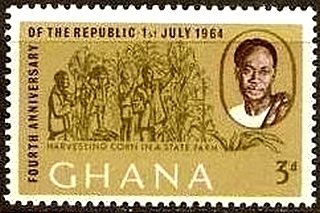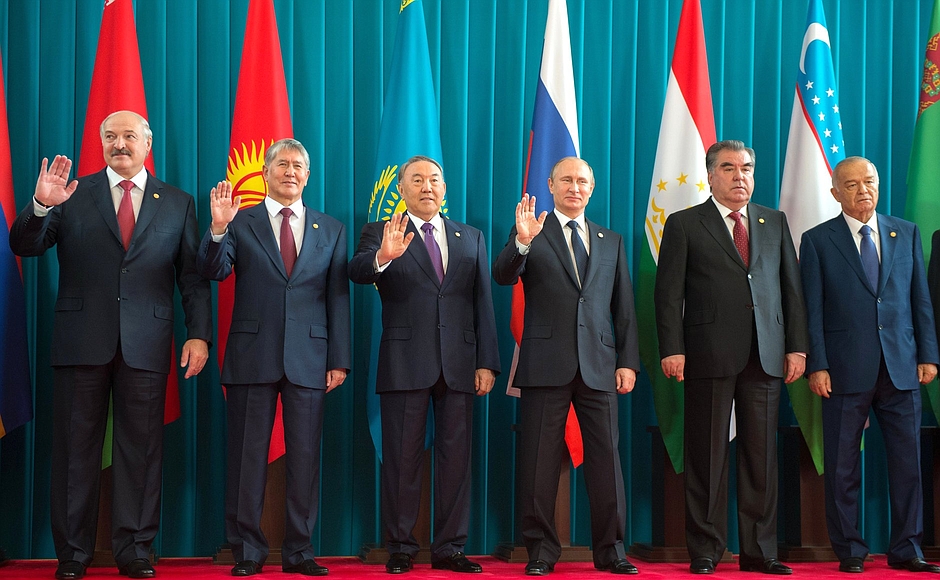Stamp: 4th anniv. of the Republic. (Ghana 1964)
4th anniv. of the Republic. (Ghana 1964)
01 July (Ghana ) within release 4th anniv. of the Republic. goes into circulation Stamp 4th anniv. of the Republic. face value 3 Ghanaian penny
| Stamp 4th anniv. of the Republic. in catalogues | |
|---|---|
| Michel: | Mi:GH 173 |
| Stanley Gibbons: | Sg:GH 335 |
| Stamp Number: | Sn:GH 167 |
| Yvert et Tellier: | Yt:GH 159 |
Stamp is horizontal format.
Also in the issue 4th anniv. of the Republic.:
- Stamp - 4th anniv. of the Republic. face value 3;
- Stamp - 4th anniv. of the Republic. face value 6;
- Stamp - Charitable work face value 1'3;
- Stamp - 4th anniv. of the Republic face value 5;
- Souvenir Sheet - 4th anniv. of the Republic face value None;
Stamp 4th anniv. of the Republic. it reflects the thematic directions:
A head of state (or chief of state) is the public persona that officially represents the national unity and legitimacy of a sovereign state. In some countries, the head of state is a ceremonial figurehead with limited or no executive power, while in others, the head of state is also the head of government. In countries with parliamentary governments, the head of state is typically a ceremonial figurehead that does not actually guide day-to-day government activities and may not be empowered to exercise any kind of secular political authority (e.g., Queen Elizabeth II as Head of the Commonwealth). In countries where the head of state is also the head of government, the president serves as both a public figurehead and the actual highest ranking political leader who oversees the executive branch (e.g., the President of the United States).
Agriculture is the cultivation and breeding of animals, plants and fungi for food, fiber, biofuel, medicinal plants and other products used to sustain and enhance human life.[1] Agriculture was the key development in the rise of sedentary human civilization, whereby farming of domesticated species created food surpluses that nurtured the development of civilization. The study of agriculture is known as agricultural science. The history of agriculture dates back thousands of years, and its development has been driven and defined by greatly different climates, cultures, and technologies. Industrial agriculture based on large-scale monoculture farming has become the dominant agricultural methodology.


